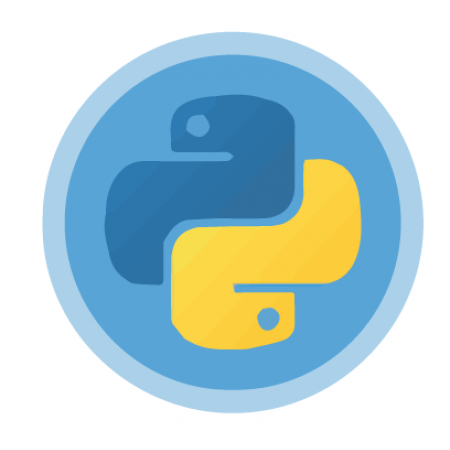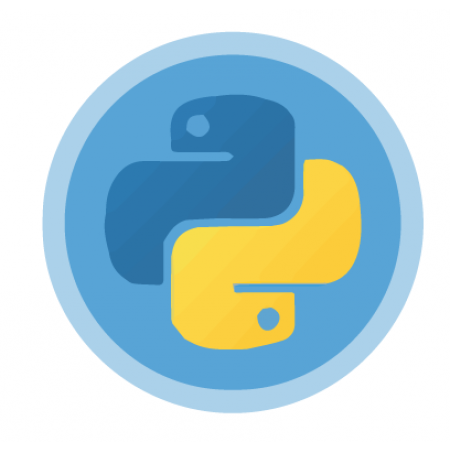x
Search results for 'earth science'
Show Filter
Network+ Guide to Networks 2 (TCH542)
This is the second semester of a two-semester course. The course continues to give students the technical skills and industry know-how to begin an exciting career installing, configuring, and troubleshooting computer networks. The course helps prepare students for success on CompTIA’s Network+ N10-008 certification exam with fully mapped coverage of all objectives, including protocols, topologies, hardware, network design, and troubleshooting.$450.00
Network+ Guide to Networks 1 (TCH541)
This is the first semester of a two-semester course. The course gives students the technical skills and industry know-how to begin an exciting career installing, configuring, and troubleshooting computer networks. The course helps prepare students for success on CompTIA’s Network+ N10-008 certification exam with fully mapped coverage of all objectives, including protocols, topologies, hardware, network design, and troubleshooting.$450.00
Digital Media: Animate with Exam Prep (TCH430)
TCH430 Digital Media: Animate with Exam Prep is MSi curriculum that prepares students for the Adobe Certified Professional Exam. This course focuses on the basics of working in the animation industry, such as identifying the purpose, audience, and audience needs for preparing content, communicating design plans, understanding copyright and permissions, key animation, and interactive media terminology. Students will learn how to use core tools and features to create and modify vector elements, manage layers, apply basic auto-correction methods, manipulate digital graphics and media, apply effects, manage audio and video, and export assets for various platforms.$450.00
3D Modeling 2
Many buildings that are rendered in the real world first are constructed in a digital 3D world that depicts the aesthetics, environment, and conditions of what will come to be. In this course, you will be introduced to the tools and techniques needed to create works of 3D art. You will bring your objects to life with color, textures, lighting, and shadow all while simulating the movement of world around. Are you ready to bring beautiful objects to life in a 3D world? Let’s get started today!$450.00
Web Development, Semester 2
The Web Development Capstone Course is intended to teach students the fundamentals of web development in a project-based learning environment. Students will be taught the basic elements of web development, such as web hosting, file organization, and incorporating Javascript into HTML files. Over the course of the school year, students will collaboratively and independently design, develop and implement functional and responsive webpages using these foundational skills.$450.00
Web Development, Semester 1
The Web Development Capstone Course is intended to teach students the fundamentals of web development in a project-based learning environment. Students will be taught the basic elements of web development, such as web hosting, file organization, and incorporating Javascript into HTML files. Over the course of the school year, students will collaboratively and independently design, develop and implement functional and responsive webpages using these foundational skills.$450.00
Video Game Design 1 Semester 2 (Project Based Learning)
The CodeHS video game design curriculum teaches the foundations of creating video games in JavaScript. The course utilizes a project-based learning approach. The content is fully web-based, with students writing and running code in the browser. Lessons consist of video tutorials, short quizzes, example programs to explore, and written programming exercises, adding up to over 100 hours of hands-on programming practice in total. Students write and run JavaScript programs in the browser using the CodeHS editor.
$450.00
Video Game Design 1 Semester 1 (Project Based Learning)
The CodeHS video game design curriculum teaches the foundations of creating video games in JavaScript. The course utilizes a project-based learning approach. The content is fully web-based, with students writing and running code in the browser. Lessons consist of video tutorials, short quizzes, example programs to explore, and written programming exercises, adding up to over 100 hours of hands-on programming practice in total. Students write and run JavaScript programs in the browser using the CodeHS editor.
$450.00
Web Design 1 (Project Based Learning)
Web Design 1 is a CodeHS course that teaches students how to build their own web pages. Students will learn the languages HTML and CSS, and will create their own live homepages to serve as portfolios of their creations. By the end of this course, students will be able to explain how web pages are developed and viewed on the Internet, analyze and fix errors in existing websites, and create their very own multi page websites. Students will learn the foundations of user interface design, rapid prototyping and user testing, and will work together to create professional, mobile responsive websites. The course utilizes a project-based learning approach. The content is fully web-based, with students writing and running code in the browser. Lessons consist of video tutorials, short quizzes, example programs to explore, and written programming exercises.$450.00
Introduction to the Internet
TCH006E2 Introduction to the Internet is a CodeHS introductory computer science course that teaches the basics of designing a web page, and how information is represented digitally and sent over the Internet. Students will create a personal portfolio website showing projects they build throughout the course. With a unique focus on creativity, problem solving and project based learning, Introduction to the Internet gives students the opportunity to explore several important topics of computing using their own ideas and creativity to develop an interest in computer science that will foster further endeavors in the field. Each lesson includes at least one formative short multiple-choice quiz. At the end of each unit, students take a summative multiple choice unit quiz that assesses their knowledge of the concepts covered in the unit.$450.00
AP® Environmental Science Semester 2
The course provides students with the scientific principles, concepts, and methodologies required to understand the interrelationships of the natural world. The course draws upon various disciplines, including geology, biology, environmental studies, environmental science, chemistry, and geography in order to explore a variety of environmental topics. Topics explored include natural systems on Earth; biogeochemical cycles; the nature of matter and energy; the flow of matter and energy through living systems; populations; communities; ecosystems; ecological pyramids; renewable and nonrenewable resources; land use; biodiversity; pollution; conservation; sustainability; and human impacts on the environment. AP Environmental Science prepares students for the AP exam and for further study in science, health sciences, or engineering.
The AP Environmental Science course provides a learning experience focused on allowing students to develop their critical thinking skills and cognitive strategies. Scientific inquiry skills are embedded in the direct instruction, wherein students learn to ask scientific questions, deconstruct claims, form and test hypotheses, and use logic and evidence to draw conclusions about the concepts.
Students perform hands-on labs and projects that give them insight into the nature of science and help them understand environmental concepts, as well as how evidence can be obtained to support those concepts. Virtual lab activities enable students to engage in investigations that would otherwise require long periods of observation at remote locations and to explore simulations that enable environmental scientists to test predictions. During both hands-on and virtual labs, students form hypotheses; collect, analyze, and manipulate data; and report their findings and conclusions. Throughout this course, students are given an opportunity to understand how biology, earth science, and physical science are applied to the study of the environment and how technology and engineering are contributing solutions for studying and creating a sustainable biosphere.
$450.00
AP® Environmental Science Semester 1
The course provides students with the scientific principles, concepts, and methodologies required to understand the interrelationships of the natural world. The course draws upon various disciplines, including geology, biology, environmental studies, environmental science, chemistry, and geography in order to explore a variety of environmental topics. Topics explored include natural systems on Earth; biogeochemical cycles; the nature of matter and energy; the flow of matter and energy through living systems; populations; communities; ecosystems; ecological pyramids; renewable and nonrenewable resources; land use; biodiversity; pollution; conservation; sustainability; and human impacts on the environment. AP Environmental Science prepares students for the AP exam and for further study in science, health sciences, or engineering.
The AP Environmental Science course provides a learning experience focused on allowing students to develop their critical thinking skills and cognitive strategies. Scientific inquiry skills are embedded in the direct instruction, wherein students learn to ask scientific questions, deconstruct claims, form and test hypotheses, and use logic and evidence to draw conclusions about the concepts.
Students perform hands-on labs and projects that give them insight into the nature of science and help them understand environmental concepts, as well as how evidence can be obtained to support those concepts. Virtual lab activities enable students to engage in investigations that would otherwise require long periods of observation at remote locations and to explore simulations that enable environmental scientists to test predictions. During both hands-on and virtual labs, students form hypotheses; collect, analyze, and manipulate data; and report their findings and conclusions. Throughout this course, students are given an opportunity to understand how biology, earth science, and physical science are applied to the study of the environment and how technology and engineering are contributing solutions for studying and creating a sustainable biosphere.
$450.00
NEED MORE INFO

THANK YOU!
We have received your inquiry and you will start to receive additional information about our school offerings and programs. An enrollment consultant will contact you shortly.





